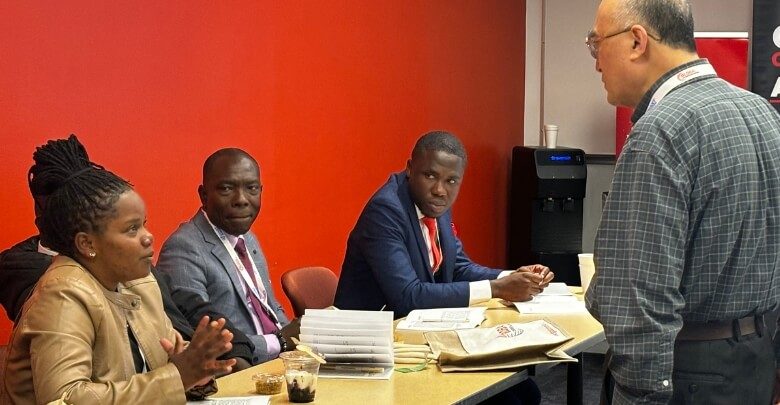Are you an economics student or professional interested in attending conferences but not sure where to start? Attending conferences is a great way to network, learn about cutting-edge research, business management, and gain exposure to industry experts.
So, most economic enthusiasts have a common question: Can I go to economics conferences? Yes, you can attend economics conferences as a student or professional.
This article will explore the benefits of attending economics conferences and highlight conferences worth attending. Let’s dive in and explore the world of economics conferences.
Benefits Of Attending Economics Conferences
Attending economics conferences provides a host of benefits for students and professionals alike. One of the primary benefits is the opportunity to network with other professionals and students in the field, which lead to new job opportunities, collaborations, and insights into industry trends.
For example, the forthcoming Business Management and Economic Conference in Canada will offer exposure to cutting-edge research and trends in economics through keynote lectures and presentations by industry experts. Additionally, this conference allows attendees to present their papers and research to peers and professionals.
This helps attendances to build professional reputations and create new opportunities for collaboration. With so many potential benefits, it’s no wonder that attending economics conferences has become a popular way for professionals and students to stay up-to-date with the latest developments in the field.
Can I Go To Economics Conferences?
Yes, you can attend economics conferences. Attending conferences is an excellent opportunity to learn more about your field, connect with other professionals and researchers, and gain exposure to your work.

To attend an economics conference, you will need to register and potentially submit a paper or session proposal in advance. Ensure to check the conference website for important deadlines and requirements.
Additionally, consider applying for any available scholarships or travel grants that can help cover the costs of attendance.
How Do You Become An Expert In Economics Conferences?
Becoming an expert in economics conferences typically requires a combination of education, experience, and networking. Here are some steps you can take to become an expert in this field:
1. Commitment to Continuous Learning
The journey toward becoming an expert in economics conferences begins with a deep commitment to continuous learning. This entails staying up-to-date with recent economic theories, trends, and debates. Regularly reading economic journals, books, and following renowned economists on social media platforms are effective ways to enhance knowledge.
2. Mastering Effective Communication
Effective communication is crucial in economics conferences. Attendees should be able to articulate their thoughts and ideas clearly. Joining debate clubs, public speaking training, or attending workshops can help hone these skills.
3. Building a Strong Network
Networking is an essential aspect of economics conferences. The more economists and professionals one knows, the more opportunities to learn and grow. Attend as many conferences, seminars, and workshops as possible, and don’t hesitate to introduce yourself to others.
4. Mentorship and Guidance
Finding a mentor who is already an expert in economics conferences can fast-track the journey. A mentor can provide invaluable advice, share experiences, and guide you in the right direction.
What Should I Bring To An Economic Conference?
When attending an economic conference, it’s essential to be prepared so that you can make the most of your time there. Here are some items you should consider bringing with you:
- Prepared Presentation Materials: If you’re presenting at the conference, ensure your presentation materials are ready and well-structured. This includes your PowerPoint slides, speech notes, and any handouts you may have for the audience.
- Digital Tools: A laptop, tablet, or smartphone is crucial for note-taking, staying connected, and reviewing conference materials. Don’t forget your charger and a power bank to avoid running out of battery.
- Business Cards: These small pieces of paper are invaluable for networking. Ensure you have plenty on hand to distribute to new contacts.
- Comfortable Attire: Conferences are often long and may require a lot of standing or walking. Therefore, comfortable and professional attire is essential.
- Notepad and Pen: Old school, perhaps, but always reliable. A notepad and pen are essential for jotting down important points, ideas, and contact information.
How Can Students Participate In an Economic Conference?
Students can participate in economic conferences in several ways, including:
1. Research and Preparation
Students interested in participating in economic conferences should start by researching the conference theme, notable attendees, and presentation topics. This will provide a good understanding of what to expect.
2. Submission of Papers
Many economic conferences allow students to submit their research papers. If selected, they get a chance to present their work, a valuable opportunity for gaining exposure and receiving feedback.
3. Volunteering Opportunities
Volunteering at these conferences can provide a unique perspective on how they’re run. It also allows for networking opportunities with professionals in the field.
4. Joining Discussions and Workshops
Most conferences feature interactive workshops and discussion panels. Actively participating in these can enhance learning and provide a platform to share ideas.
5. Seeking Sponsorship
Some universities and institutions offer sponsorship for students to attend such conferences. Exploring these options can help alleviate financial constraints associated with conference attendance.
Applying To Attend Economics Conferences
Attending an economics conference involves submitting an application by a specific deadline and providing certain required materials. The application process varies depending on the conference but generally includes information about the applicant’s background, research, and relevant experience.
Application deadlines are several months in advance of the conference. It’s important to pay attention to these deadlines and submit the application on time.
Required materials for the application include a CV or resume, an abstract or summary of the research being presented, and letters of recommendation.
To increase the chances of being accepted to attend the conference, applicants should highlight their relevant experience and research in the application.
This involves published research, relevant coursework, or previous conference presentations. So, carefully follow the conference organizers’ instructions or guidelines.
There are specific application processes for undergraduate students for conferences like the Carroll Round Undergraduate Economics Research Conference.
These involve submitting a research paper or abstract for review by the conference committee. Graduate students also have specific application processes, including submitting a research proposal or dissertation abstract.
Registration And Fees For Economics Conferences
Registration and fees are important considerations when attending economics conferences. Here is an overview of the registration process for economics conferences and how to determine if the fees are worth the cost.
Registration for economics conferences typically opens a few months before the conference date. Deadlines for registration vary but are often several weeks before the conference begins.
Some conferences offer early bird registration discounts, so registering early is a good idea to take advantage of these savings. To register for a conference, attendees typically complete an online form and pay the fee.
Registration fees for economics conferences vary depending on the conference and the attendee type. Students often receive discounted rates, while full-time professionals have to pay more.
It’s important to carefully review the conference program and assess if the registration cost is worth it. Consider the value of attending the conference, including the opportunities to network, attend sessions, and learn about the latest research and developments in the field.
Undergraduate and graduate students should also pay attention to the registration process. Many conferences offer discounted rates for student attendees.
Some conferences also offer opportunities for students to present their research or participate in panel discussions. Be sure to review the conference program and identify any opportunities of interest.
Tips For Submitting Successful Conference Papers
Here are some tips for submitting successful conference papers:
- Follow Guidelines: Ensure that you follow the submission guidelines of the conference, including formatting and length requirements.
- Write a Strong Abstract: Your abstract should be clear, concise and highlight the key points of your research.
- Be Original: Your research should be original and innovative. The selection committee looks for research that adds new knowledge to the field of economics.
- Get Feedback: Share your paper with colleagues or mentors and get feedback before submitting it to the conference. Their feedback can help you identify weaknesses in your paper and make improvements.
Conclusion
Attending economics conferences is a valuable experience for anyone interested in the field. These conferences provide a unique opportunity to learn from experts in the field, present research findings, and network with other professionals.
However, attending these conferences come at a cost, both financially and in terms of time and effort. So, you should consider the benefits and drawbacks of attending a conference before committing.






